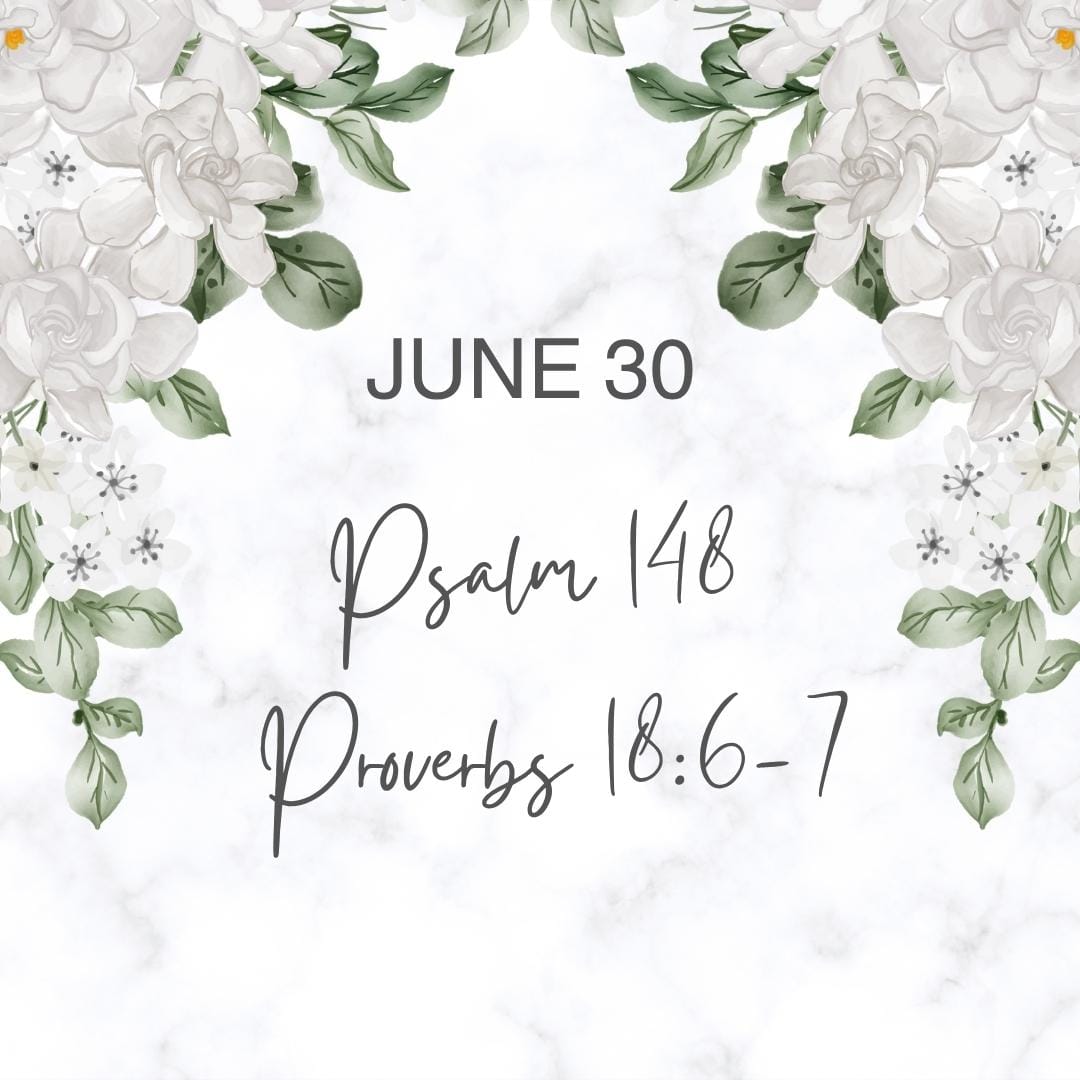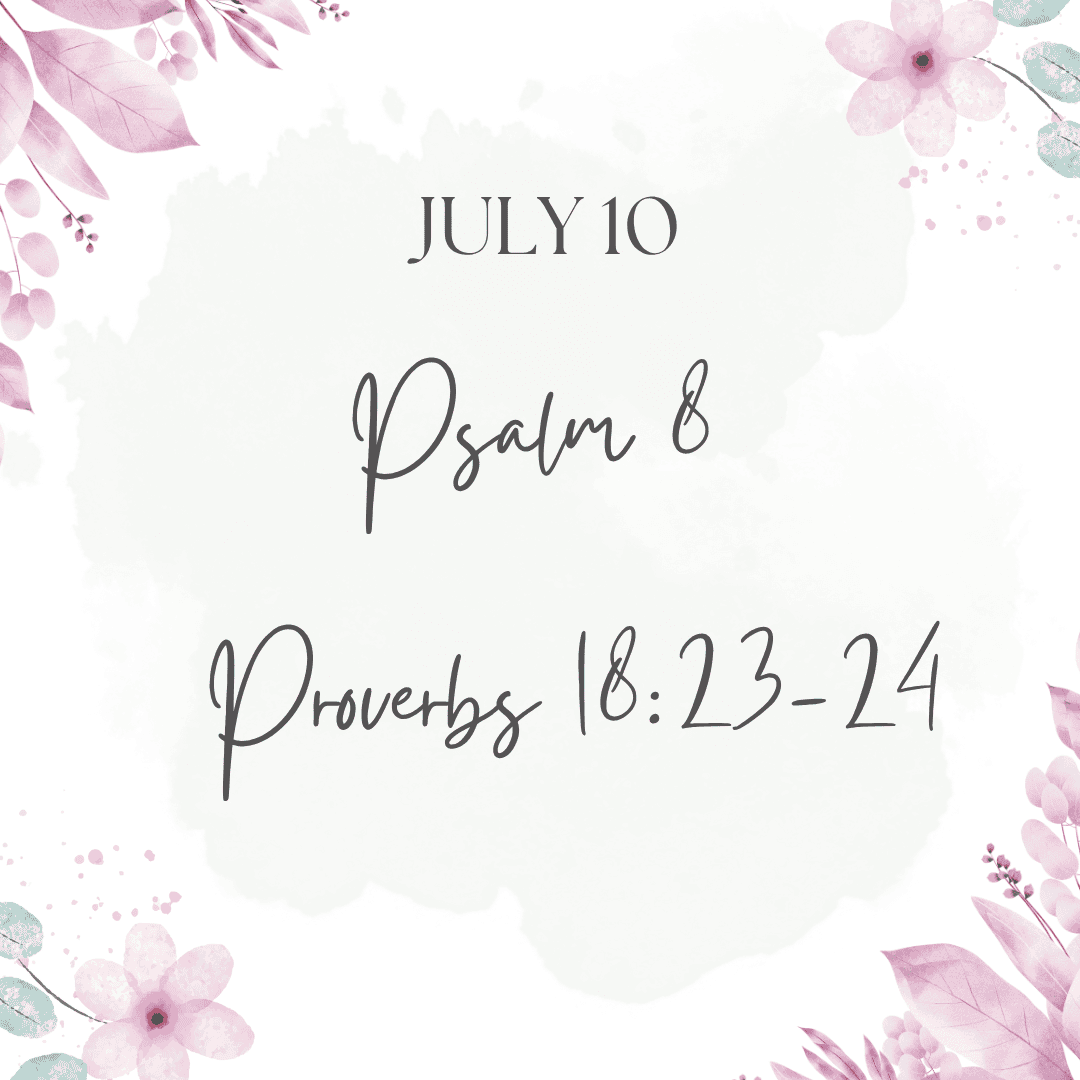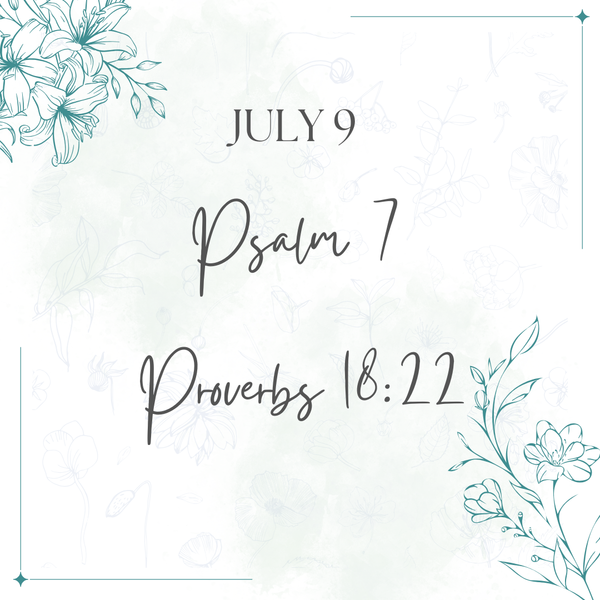June 30 Psalm 148; Proverbs 18:6-7

- Psalm 148: Who or what is called to praise the Lord in this psalm? List the different groups and elements mentioned (vv.1–12).
- Psalm 148:5–6: What reasons are given for creation to praise the Lord? What does this tell you about God’s role in the world?
- Proverbs 18:6–7 : What happens to fools according to these verses? What specific words are used to describe the consequences of foolish speech?
- How does Psalm 148 portray God's authority over creation? What qualities of God are revealed through this universal call to praise?
- In light of Proverbs 18:6–7, what does God's wisdom seem to value in speech and behavior? What does this imply about His character?
- What emotional tone do you sense in Psalm 148? How might this tone reflect God’s heart and His joy in His creation?
- When you are emotionally low or overwhelmed, how might joining in the call to praise (Psalm 148) affect your heart or mindset? Remember, we can always ask Him for strength to CHOOSE to praise him even when life hits hard, like Habakkuk 3:17-18.
- How can you practice renewing your emotions by aligning your words more with wisdom and less with the reactive speech warned about in Proverbs 18:6–7?
- In times of inner conflict or anger, what practical step can you take to “praise the Lord” instead of letting negative emotions dominate?
- What does Psalm 148 teach you about your place in creation and how your emotional health might be tied to worship and recognizing God's rule?
May the meditation on His Word help you experience God’s love and faithfulness more and more, so that one day, no matter what happens in your life, you will know that He knows what is best for you.
Just like Abraham, whose faith in offering Isaac was the result of a long journey—one filled with stumbles and struggles. He had once even put his wife in great danger just to save his own life. It was through this ongoing process of knowing and experiencing God that his faith was formed.



